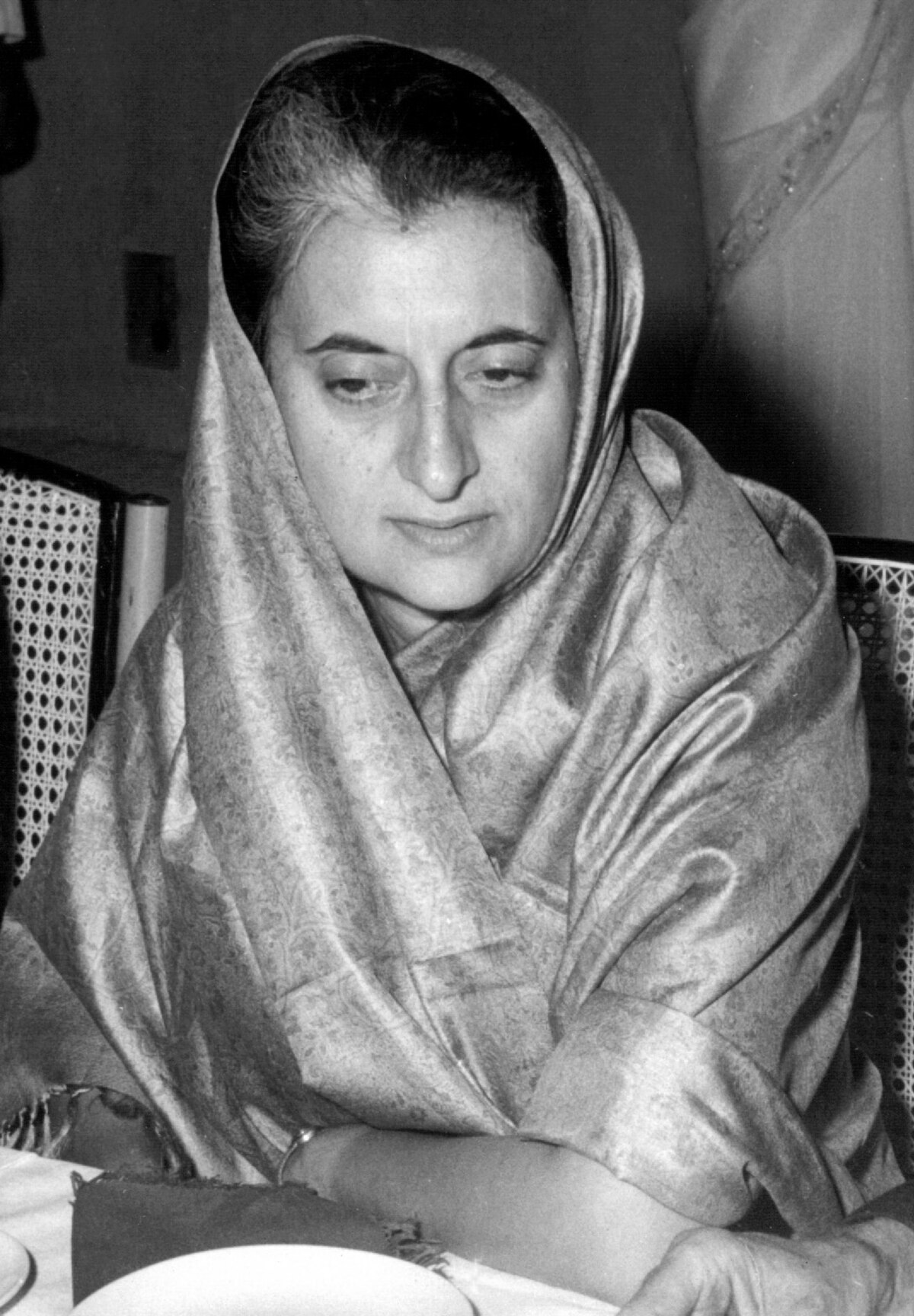
Indira Gandhi
IndiaJawaharlal Nehru, India's first Prime Minister, passed away on May 27, 1964. He was succeeded by Lal Bahadur Shastri. During Shastri's tenure, in 1965, India and Pakistan engaged in another war over the contentious region of Kashmir. This conflict, however, did not lead to any significant change in the Kashmir boundary. The war concluded with the Tashkent Agreement, mediated by the Soviet government. Tragically, Shastri died unexpectedly on the night following the signing of this agreement.
The leadership vacuum after Shastri's death led to a contest within the Indian National Congress, resulting in the elevation of Indira Gandhi, Nehru's daughter, to the position of Prime Minister. Gandhi, who had been serving as the Minister for Information and Broadcasting, defeated the right-wing leader Morarji Desai in this contest. However, the 1967 general elections saw the Congress Party's majority in Parliament reduced, reflecting public discontent over rising commodity prices, unemployment, economic stagnation, and a food crisis.
Despite these challenges, Gandhi consolidated her position. Morarji Desai, who became Deputy Prime Minister and Finance Minister in her government, along with other senior Congress politicians, initially tried to limit Gandhi's authority. However, under the guidance of her political advisor P. N. Haksar, Gandhi shifted towards socialist policies to regain popular appeal. She successfully abolished the Privy Purse, which was a payment made to former Indian royalty, and launched a significant move towards the nationalization of Indian banks. Although these policies faced resistance from Desai and the business community, they were popular among the general populace.
The internal party dynamics reached a turning point when Congress politicians tried to undermine Gandhi by suspending her party membership. This action backfired, leading to a mass exodus of members of parliament who aligned with Gandhi, resulting in the formation of a new faction known as Congress (R). This period marked a significant shift in Indian politics, with Indira Gandhi emerging as a strong central figure, steering the country through a phase of intense political and economic changes.
